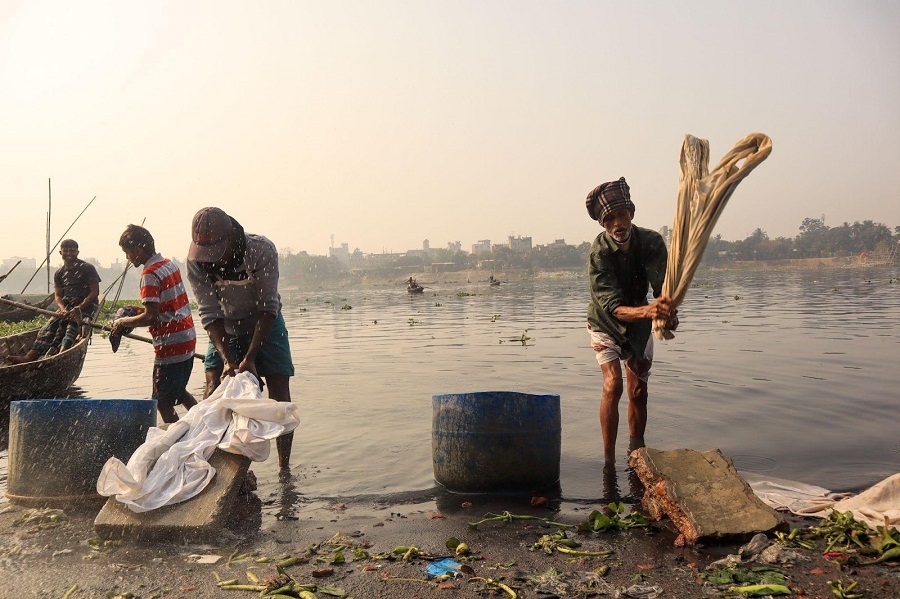How clean are our washed clothes? The story of laundry in Dhaka

Published :
Updated :

Imagine a city where the very clothes that are meant to protect us from harm are themselves a source of danger. A town where the litter of its residents flows through a polluted river, carrying with it not only the city's waste but also the potential for disease. Such is the grim reality of Dhaka, where the humble act of washing clothes has become a dangerous enterprise.

As the demand for clean clothes has increased, many washermen have turned to the Buriganga River for their business. The washermen's use of the river's contaminated water for laundry poses a serious health risk to the city's residents.
The Buriganga River, once a vital lifeline for the city, has become a cesspool of industrial waste, sewage, and other pollutants. According to a recent study by the Department of Environment, the river's water quality is so poor that it is unfit for any human use, including washing clothes. The study found that the river contains high levels of coliform bacteria, heavy metals such as lead, mercury, and arsenic, as well as organic pollutants such as pesticides, herbicides, and industrial chemicals.
Despite the river's poisonous state, washermen in the Kamrangirchar area continue to use its contaminated waters to clean clothes, including those from hospitals.
This practice poses a significant risk to public health, as bacteria, viruses, and other pathogens can be easily transferred from the dirty water to the garments, potentially infecting patients.
According to residents, the washermen justify their actions by claiming that the river's flowing water prevents pollution from accumulating. However, medical experts warn that even brief exposure to contaminated water can harbour harmful microorganisms.
The situation is further exacerbated by the lack of enforcement from local authorities. To gain a deeper understanding of the issue, we interviewed several washermen who work along the Buriganga River.

When asked why they choose to wash clothes in such a polluted environment, they explained that they have no other choice. MD Afzal, a washerman who has been working here for more than 10 years, said -"If we don't wash the clothes here, the business wouldn't be profitable for us." Another washerman said, "We collect the dirty clothes from all over Dhaka and wash and again deliver it to all over Dhaka."
The washermen also acknowledged that washing hospital clothes in the river is wrong but said that they have no choice. "We got paid for washing clothes," another washerman added. "We wash and clean dirty clothes no matter where it's coming."
The situation is particularly concerning for patients in Dhaka's hospitals. Many patients rely on clean clothes to prevent the spread of infection. Still, the risk of exposure to harmful bacteria and viruses is high when hospital clothes are washed in contaminated water.
To address this public health crisis, the authorities must take decisive steps to provide alternative sources of clean water for laundry purposes, enforce regulations against using contaminated water, and raise awareness about the health risks associated with this practice.
The problem of laundry in Dhaka is a complex one, but it is clear that the current situation is unsustainable. While the washermen may be struggling to make a living, their actions have far-reaching consequences.
So, the next time you slip into a freshly laundered hospital gown, take a moment to ponder its journey. Did it emerge from a state-of-the-art cleaning facility, or did it take a dip in the city's most toxic waste dump? In Dhaka, the answer is often the latter.
Sheikh Shabab Tawkee Rupok is studying Development Studies at the University of Dhaka, e-mail: rupok.du.ds@gmail.com


 For all latest news, follow The Financial Express Google News channel.
For all latest news, follow The Financial Express Google News channel.